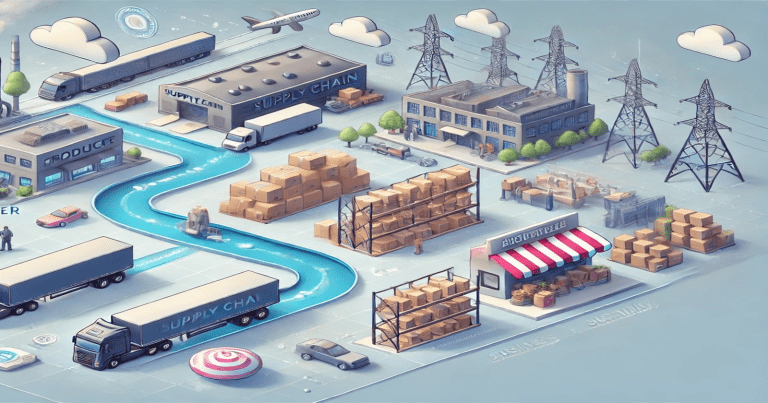Marketing intermediaries are very vital in the supply chain as they connect producers with consumers. They assist businesses to distribute goods and services effectively such that they can reach the ultimate users. Marketing intermediaries refer to people or organizations that facilitate the promotion, sale, and distribution of goods from manufacturers to consumers. Such intermediaries comprise wholesalers, retailers, agents, and distributors that ensure that products reach the proper market at the appropriate time.
Marketing intermediaries are used by business firms to fill the gap between production and consumption. Without marketing intermediaries, manufacturers will not be able to distribute their products efficiently. Marketing intermediaries occur in different types, which include primary market intermediaries, capital market intermediaries in India, and stock market intermediaries. Each of the types plays an important role for smooth operations of the economy. They also support the increase of sales and satisfy customers by having better access to products.
What are Marketing Intermediaries?
Marketing intermediaries help facilitate the distribution of products, enhance sales, and facilitate the smooth distribution of products to reach the market. Among these intermediaries are wholesalers, retailers, agents, brokers, and financial institutions.
Intermediaries facilitate warehousing, transportation, financing, and advertising. This way, the intermediaries minimize costs and risks to the manufacturers and enhance the supply of goods for consumers. The intermediaries help facilitate investment transactions, ensuring the efficient working of financial markets in the economy.
Companies use various marketing intermediaries depending on the needs. Most are concerned with physical product distribution, whereas others exist as institutions in financial markets aiding companies to source funds. Though they may be dealing with either physical goods or financial securities, marketing intermediaries make the sale transactions more convenient and effective.
Role of Marketing Intermediaries
Marketing intermediaries have a significant impact on the economy because they enable products and services to reach the consumer effectively. They increase market reach for a business and boost customer satisfaction. Intermediaries make business easier by handling logistics, reducing cost, and enhancing sales opportunities. Without them, manufacturers would face a lot of difficulties in the distribution of their products. This is what is reflected in the table below.
| Important Role | Explanation |
| Efficient Distribution | They ensure that goods and services reach the market quickly and efficiently. |
| Market Expansion | They help businesses expand into new markets by providing local knowledge and networks. |
| Reduced Costs | They handle storage, transportation, and sales, reducing costs for manufacturers. |
| Improved Customer Service | They provide after-sales support, enhancing customer satisfaction. |
| Risk Management | They reduce risks for manufacturers by managing inventory and financing transactions. |
Examples of Marketing Intermediaries
Marketing intermediaries exist in various forms within industries. Each intermediary is important in facilitating market transactions with fewer hassles to businesses and consumers in getting what they need efficiently.
| Type | Examples |
| Primary market intermediaries | Investment banks, underwriters, stock exchanges |
| Capital market intermediaries in India | SEBI, mutual funds, stockbrokers |
| Stock market intermediaries | Brokers, dealers, depositories |
| Retailers | Supermarkets, department stores, e-commerce websites |
| Wholesalers | Distributors, bulk suppliers, importers/exporters |
| Agents and Brokers | Real estate agents, insurance brokers, commodity traders |
Types of Marketing Intermediaries
There are four main classifications of marketing intermediaries according to their functions and responsibilities. They are
Retailing
Retailers sell small quantities of the product directly to the consumer. They offer variety, customer services, and after-sales support. Examples include supermarkets, departmental stores, and online retailers. Retailers serve the public, and their product offerings affect consumers’ purchasing power through advertisements and promotions. The retailers offer goods near the consumer for convenience.
Wholesalers
Manufacturers sell large quantities of products to wholesalers, who in turn sell them to retailers. Wholesalers offer a discount on large volumes of product, which saves cost, and ensures an uninterrupted supply of products. Wholesalers help businesses maintain stock levels and prevent stockouts. They also provide warehouse space, transportation, and financing services.
Agents and Brokers
Agents and brokers act as agents for the buyers and sellers of goods, however they acquire no ownership of the goods. They acquire their incomes by acquiring a commission. Of this group are real estate agents and insurance brokers, who help businesses identify the target market, negotiate deals, and ensure the smooth completion of a transaction. In such organizations, their application in the knowledge of market trends and consumer behavior may add value to a business.
Financial Intermediaries
Financial intermediaries include banks, stockbrokers, and investment firms. These financial intermediaries help companies raise capital, and they can facilitate financial transactions. Financial intermediaries are responsible for economic growth as they smoothen out financial operations and investments. Loans, asset management, and increasing business activities through them are performed.
Advantages of Distribution Intermediaries
Many are the ways through which businesses benefit from using the services of a distribution intermediary. The most important benefits are as follows:
Cost Savings
Intermediaries save the transportation and storage cost for manufacturers. They also save marketing costs since they market their products. Intermediaries help increase the market for businesses because they use their networks and customer base.
Inventory Management
They monitor the warehouses and inventory, which reduces stockouts and overstocking. Agents increase product awareness and increase sales by promoting and marketing products.
Customer Support
They offer support after sales, return, and replacement, which increases the level of customer satisfaction.
Disadvantages of Intermediary Distribution
Intermediaries have their own disadvantages. The following are the five major disadvantages:
Increased Cost
Intermediaries add their markup, which makes products costlier for consumers. Manufacturers lose control over pricing and branding since intermediaries influence product positioning.
Dependency Risks
Businesses rely much on intermediaries, which can be a problem if the partnerships go sour. Intermediaries share profits with businesses, so businesses may make less on each sale.
Conflicts of Interest
Intermediaries are more concerned with being paid than with the manufacturer’s brand image and customer service.
| Advantages | Disadvantages |
| Reduces transportation, storage, and marketing costs for manufacturers. | Intermediaries add their markup, making products more expensive for consumers. |
| Helps businesses reach wider audiences through established networks. | Manufacturers depend on intermediaries, which may limit direct market control. |
| Handles warehousing and stock management, preventing stock shortages. | Manufacturers have less control over inventory, leading to potential overstock or understock situations. |
| Enhances product visibility, leading to higher sales and brand awareness. | Intermediaries may prioritize their own profits over manufacturers’ interests. |
| Manages financial risks, unsold inventory, and damaged goods. | Businesses share profits with intermediaries, reducing their overall earnings. |
| Provides customer support, return policies, and product guidance. | Poor service from intermediaries can harm a brand’s reputation. |
| Adapts to market trends and helps businesses adjust distribution strategies. | Intermediaries may not align with manufacturers’ long-term goals, causing conflicts. |
Need of Distribution Intermediaries
Intermediaries performing several functions facilitate a business process. Five significant functions are given below:
- Transport and Logistics: They arrange for movement of products from producers to retailers and subsequently to the consumers.
- Warehousing and storage: They stock commodities in warehouses so as to maintain steady supply in the market.
- Financing Services: They provide credit, loans and financing to organizations so as to run the activities smoothly.
- Promotion and Advertisement: They enhance commodities through advertisement and brand identity.
- Risk Management: They deal with idle stock, damaged commodities and fluctuations of the market.
Marketing Intermediaries FAQs
1. What are marketing intermediaries?
Marketing intermediaries are those firms or persons who facilitate the flow of goods and services between the producers and the final consumers.
2. What is the role of intermediaries in security markets?
Intermediaries in security markets act as an interface between investors who seek to purchase or sell stocks, bonds, and other financial securities.
3. What are types of intermediaries in stock markets?
The intermediaries of the stock market are brokers, dealers, investment banks, and stock exchanges. They facilitate trading and investment activities in financial markets.
4. Which marketing channel does not have intermediary levels?
A direct marketing channel has no intermediaries. In this model, manufacturers sell products directly to consumers without wholesalers or retailers.
5. What are capital market intermediaries in India?
Capital market intermediaries in India include SEBI, mutual funds, stockbrokers, and investment banks. They help businesses raise capital and regulate financial markets.


